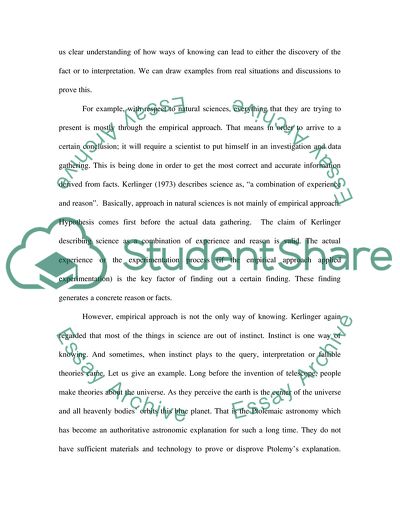Cite this document
(Ways of Knowing: Facts and Interpretations Essay Example | Topics and Well Written Essays - 1250 words, n.d.)
Ways of Knowing: Facts and Interpretations Essay Example | Topics and Well Written Essays - 1250 words. https://studentshare.org/philosophy/1705114-is-it-an-oversimplification-to-claim-that-some-ways-of-knowing-give-us-facts-while-other-provide-interpretations
Ways of Knowing: Facts and Interpretations Essay Example | Topics and Well Written Essays - 1250 words. https://studentshare.org/philosophy/1705114-is-it-an-oversimplification-to-claim-that-some-ways-of-knowing-give-us-facts-while-other-provide-interpretations
(Ways of Knowing: Facts and Interpretations Essay Example | Topics and Well Written Essays - 1250 Words)
Ways of Knowing: Facts and Interpretations Essay Example | Topics and Well Written Essays - 1250 Words. https://studentshare.org/philosophy/1705114-is-it-an-oversimplification-to-claim-that-some-ways-of-knowing-give-us-facts-while-other-provide-interpretations.
Ways of Knowing: Facts and Interpretations Essay Example | Topics and Well Written Essays - 1250 Words. https://studentshare.org/philosophy/1705114-is-it-an-oversimplification-to-claim-that-some-ways-of-knowing-give-us-facts-while-other-provide-interpretations.
“Ways of Knowing: Facts and Interpretations Essay Example | Topics and Well Written Essays - 1250 Words”. https://studentshare.org/philosophy/1705114-is-it-an-oversimplification-to-claim-that-some-ways-of-knowing-give-us-facts-while-other-provide-interpretations.


